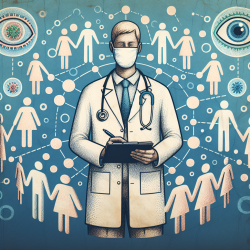Introduction
The Ebola outbreak in Dallas, Texas, in 2014 provided critical insights into public health emergency preparedness. The report titled Addressing Needs of Contacts of Ebola Patients During an Investigation of an Ebola Cluster in the United States — Dallas, Texas, 2014 offers valuable lessons for practitioners, particularly in the realm of contact tracing and community engagement. This blog will explore how practitioners can improve their skills by implementing the outcomes of this research and encourage further investigation into effective public health strategies.
Key Findings from the Ebola Contact Tracing Effort
The Dallas Ebola investigation highlighted the necessity of addressing both clinical and nonclinical needs of contacts. A total of 179 contacts were identified, including healthcare workers, community contacts, and individuals exposed through shared transportation. The report underscores the importance of community partnerships in meeting these needs, which ranged from basic necessities to educational support for quarantined children.
Implications for Practitioners
Practitioners can enhance their skills by focusing on the following areas:
- Community Engagement: Building relationships with local organizations, schools, and faith-based groups is crucial for effective public health responses. Practitioners should actively seek partnerships that can provide resources and support during emergencies.
- Addressing Nonclinical Needs: Recognizing and addressing the nonclinical needs of contacts, such as food, housing, and emotional support, can improve compliance with public health measures and reduce stigma.
- Cultural Sensitivity: Understanding the cultural, linguistic, and socioeconomic backgrounds of contacts can enhance communication and trust, leading to better outcomes in public health interventions.
- Use of Technology: Providing access to technology for education and communication can mitigate the impact of quarantine on children and families.
Encouraging Further Research
While the Dallas Ebola response was successful in many ways, the report identifies areas for improvement, such as the need for a formal needs assessment and a comprehensive database to track contact needs. Practitioners are encouraged to conduct further research into these areas to enhance public health preparedness for future outbreaks.
Conclusion
The lessons learned from the Ebola contact tracing efforts in Dallas provide a valuable framework for practitioners seeking to improve their skills and contribute to public health preparedness. By focusing on community engagement, addressing nonclinical needs, and embracing cultural sensitivity, practitioners can enhance their effectiveness in managing public health emergencies.
To read the original research paper, please follow this link: Addressing Needs of Contacts of Ebola Patients During an Investigation of an Ebola Cluster in the United States — Dallas, Texas, 2014.










